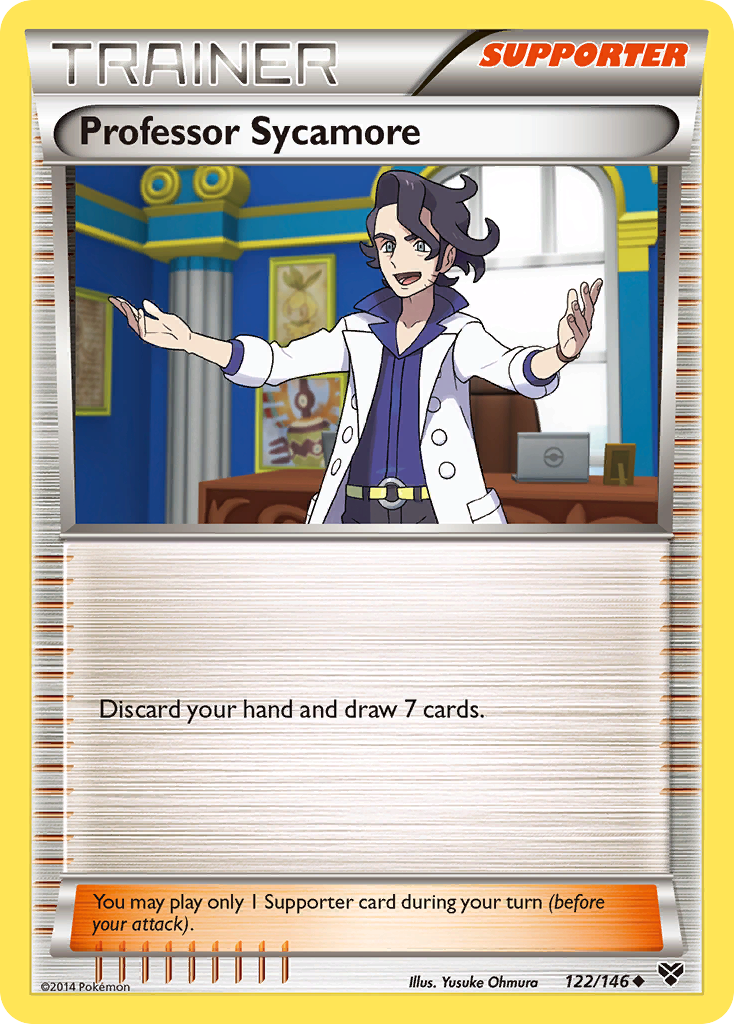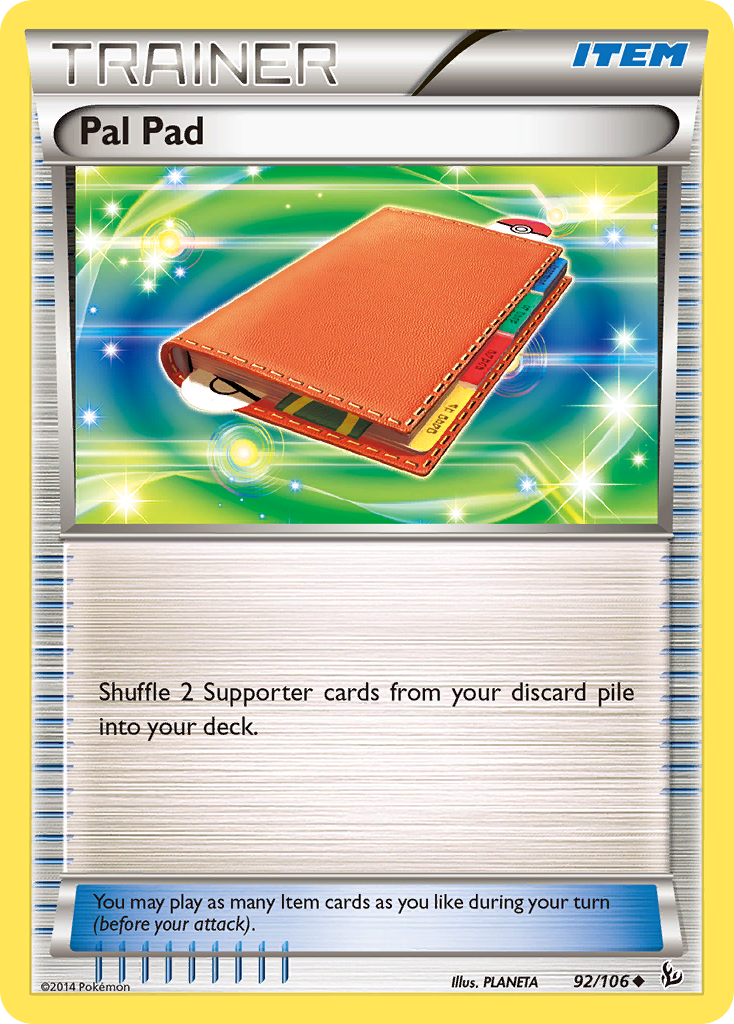EVs and IVs — Making the Leap from Casual to Competitive and How to Retain a Competitive Mindset
Before going too deep into the substance, I'd like to introduce myself. My name is John Kettler, and I'm a lifelong player, deck builder, and fan of the Pokemon Trading Card Game. I've been playing since the game first came out, but I didn't make my jump into competitive play until about a decade ago at league. Eventually I made the jump, and since then I've achieved numerous accomplishments over the years, including top cut finishes at Nationals and Worlds, two U.S. Regionals wins, four State Championship wins, and nine invitations to the World Championship, including this year!
I also know the community. That is, I really know it. I help turn casual players into strong competitors, judge, collect. You get the idea. Very few people have seen the number of perspectives on this game that I have. You can't help but see trends over time, which is why I'm situated well to discuss players who successfully go from being casual to competitive Pokemon players.
Although this article is targeted at players interested in making that first jump into Play! Pokemon, I'm also just as interested in helping competitive players stay competitive, or even advance their game. Many of the hardest workers I know consistently tell me, "You either go up or down, you never stay level." That may not be so true for people who don't participate, but speaking from personal experience, it is certainly true for competitors. I've had ups and downs in competitive Pokemon, and would like to help my fellow "old school" players stay in the loop and do well. So let's talk for a moment, shall we?
The Initial First Step: Deciding to Compete (Effort Value)
The first step to succeeding in the Pokemon TCG is really that simple. Despite low percentages of people advancing to day two in major tournaments, and the only top cut being dedicated to eight people out of tens, hundreds, or even a thousand, once you get in the mindset of wanting to compete, you've already won half the battle.
Unfortunately, actually getting to that point mentally is harder than it seems. I'll explain why, based in large part on how most people get introduced to competitive Pokemon TCG.
You find yourself hooked on an aspect of the franchise. You later learn about a particular convention, league or meetup. You go to the event, and you hear there is something involved with the cards there, so you bring whatever you have laying around and make it your 60 cards. Surprise! It turns out that the Pokemon cards are the biggest part! You then get creamed, and at that point learn there's a much bigger world out there, full of other competitive players hunting for a win.
That's essentially what happened with me at my first and only Super Trainer Showdown qualifier. I went to the event as a way to enjoy a mix of the video games and the cards, brought what I considered to be a very good deck (it wasn't), and found myself knocked out of the tournament after three rounds. I was 11 at the time, so I can cut myself some slack, but this same experience happens to people of all ages all the time with Pokemon. My competitive arc eventually started at around 2003, when I finally had enough of casual-only. I heard about Nintendo handing out invitations to its Worlds tournament, and with that motivation, got excited enough to get on my way to earning an invitation that year.
For me, I needed both internal and external motivation to make the leap: an internal change of heart from casual to competitive, and an external motivation to achieve a goal. I had at least some of that internal motivation for a long time, but finally there felt like something more to be chased than a box of cards, essentially the entire prize structure for the last year of organized play under Wizards of the Coast.
Pokemon as a franchise is designed to be social though, so it's difficult to balance that with a super-competitive edge. You can become a successful player without losing either aspect of what makes the cards so enjoyable to play.
Common Characteristics of the Newly Successful Player (Individual Value)
Because competition is always an upward or downward trend, people don't stop too often to see those important first signs of success. And because the prize structure in Pokemon is so inclusive by design, what with rewards for all levels of play and hundreds of invitations to its World Championships, it can often be hard to see if you've successfully made the leap you want to make. Even if you have the right attitude, you still need most or all of these attributes!
The Newly Successful Player Understands Key principles of Deck Building and Playing
There's no way around it: You have to play the game, and you have to have the tools to play it. Because many other authors touch on the finer points of deck construction and strategy, I won't go into too much detail here, but I will say this much: Whereas identifying the main skills behind actually playing the game (thinking ahead, not making misplays, calculations) is a more straightforward process, I feel like the skills behind deck building are more mystified nowadays. Whereas in years past, players could easily maintain "secret decks" for weeks if not months on end, in the modern era of Pokemon TCG we have an excess of great lists at our fingertips. But someone, somewhere made up the first principles behind a well-built deck, right? And each season, that could be different depending on which important staple cards rotate out.
For a a few months or even a season, you can compensate for a lack of unique deck building talent by copying lists except for a few cards, or by relying on an excellent team (more on that later). However, for a long-lived Pokemon card career, you need to be able to build decks. And doing that ultimately comes down to two things: consistency and versatility. When a player isn't given a list, the inevitable safest point is to build something that can set up reliably. Additionally, when a list is finalized, but is needing those last few special tweaks to handle a given metagame well enough, a player has to know card interactions well enough to make the right call on those final "floating slots." Newly successful players who have a breakout season tend to do both of these things with lists, which leads to the rarer situation where deck building talent in Pokemon can overcome any deficiencies that may exist in raw talent.
The Newly Successful Player is Part of a Network
Most of us don't grow in playing skill or deck building skill without some help along the way. That help becomes a mutual thing competitive players refer to as a "network," or a "team." If you've played the video games, you know that some Pokemon are version-exclusive; if you've played Pokemon GO recently, then you'd also know that some Pokemon are a lot more likely to be found in particular areas, cities, or regions.
The same concept applies with ideas, and not just about good decks, techs, or play hints. In my time playing, people's superior shuffling taught me how to shuffle better; people's choices in game supplies tuned me in to the most efficient way to manage my stuff during a tournament (I used to haul around a suitcase with me to each tournament)! Although it's been a long time sine I've truly been on a "team," I got better with my friends, not all on my own. In the player growth experience, most good players are getting there at the same time as other people, or getting there due to exposure from a much more experienced player.
Some players might suggest that the interactions for testing will be more shallow than that, but I wouldn't confuse this with professional networking. Whereas networking means more going to events, meeting people, and merely opening the possibility to a deeper relationship in the future, your network in Pokemon will probably be a lot more intimate. This is why Pokemon is full of teams, groups of people will constantly travel together and test together.
The Newly Successful Player Playtests Proactively
There's playtesting based off of trends, and then playtesting based off of new ideas. Messing around and tinkering with whatever is big is a huge part of handling the metagame, but I see more newly-successful players cut through the pack much more effectively when they focus on ways to be inspired.
Inspiration during playtesting doesn't have to be an aesthetically big event. It can just as easily be a large change as it can be a small one. All of those people who ever won National or World Championships with secret decks? That was the result of some seriously big, metagame-exploitative planning. Cutting Trainers' Mail entirely out of Night March / Vespiquen, what the most recent U.S. National Champion in Masters did, was not nearly as flashy as constructing a secret deck, but it had the same effect.
The Newly Successful Player Maintains Respectably Ambitious Goals
Finally, even after a good first competitive season, the newly successful player doesn't stop shooting for higher goals. As I said earlier, Pokemon's reward structure can encourage players to coast throughout a season, a scary prospect for someone who actually wants to earn more accolades, prizes, and wins. Few people in the world have had a perfect season though, in which they've won Worlds, Nationals, and possibly another high-tier event all in the same season, so as a point of pride and passion, there's something more to get. In other words, the newly competitive player is still hungry for the game.
Level Up or Level Down - Staying on the Upward Trend
Having a good initial outing, or jumping into the competitive foray, may be wrought with difficulty in its own right, but in my experience, staying competitive can be even more difficult. I had a chat with a friend of mine a few years ago, a former National Champion, in which he told me, "It's a lot harder for me to keep playing. I've won everything at least once except a League Challenge and a World Championship. I don't want to go to League Challenges and I run cold at Worlds, so what more is there?" Unsurprisingly, he doesn't play anymore.
So you've made it! You're a name player, a great player in your own right. How do you keep going up? Although the simple knee-jerk answer most people will give to this question is "win everything, and win more than you did last season," that's only the result of leveling up and not sliding back into mediocre performances.
This concludes the public portion of this article.
If you'd like to continue reading, consider purchasing a PokeBeach premium membership! If you're not completely satisfied with your membership, you can request a full refund within 30 days.
Each week we post high-quality content from some of the game's top players. Our article program isn't a corporate operation, advertising front, or for-profit business. We set our prices so that we can pay the game's top players to write the best content for our subscribers. Each article topic is carefully selected, goes through multiple drafts, and is touched up by our editors. We take great pride in our program!



